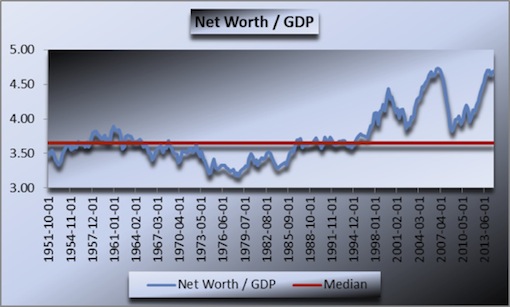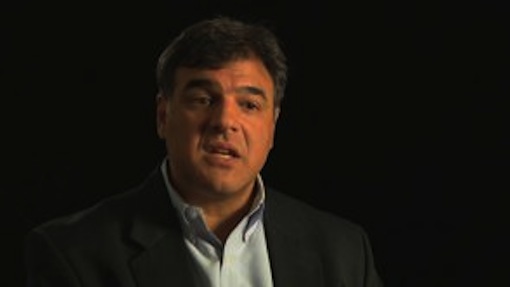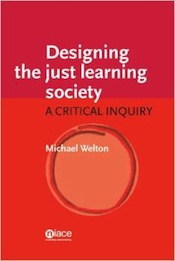Rob Urie
Two weeks after a former Obama administration official who helped engineer the bailout of General Motors sought a seat on GM’s Board of Directors to force an $8 billion share buyback to benefit hedge funds, General Motors joined the also bailed out Ford Motor Company to announce the intention to add yet one lower paid tier to the existing two-tiered wage structure. Citing overseas ‘competition,’ General Motors executives are using $8 billion in retained earnings to raise the value of company shares owned by hedge funds and to benefit themselves directly. The role of the Obama administration in retaining the two-tiered wage structure when bailing out General Motors and in sending one of its former members to ‘harvest’ the residual should raise fundamental questions about the intersection of politics and economics?
This intersection is supported by the economic theology of neoliberalism now some decades embedded into the major institutions of the West. Through its reduction of the breadth of human experience to the dull economism of market relations, neoliberalism most closely resembles economic pornography. A defining characteristic is de-contextualization for re-contextualization, removal from the breadth and depth of human relations to posit family, friends, neighbors and community as consumers to be conned, scammed and exploited. And to provide the punchline at the outset: there is nothing brilliant or insightful about the political success of neoliberalism. History is replete with totalizing ideologies that support an existing status quo until their limitations force reclamation of broader possibility.
Graph (1) above: the resurgence of neoliberalism in capitalist theory has none-too-ironically coincided with severely diminished economic performance by metrics preferred by the liberal wing of the capitalist church. Inflation-adjusted GDP (Gross Domestic Product) growth has been declining steadily since the neoliberal resurgence began in the 1970s. While historical circumstances, the aftermath of WWII, go far in explaining this performance, of what relevance is history when God is running the economy? As with explaining genocide and slavery as ‘God’s will,’ diminished economic performance is reason for more and ‘purer’ markets for true believers. The question for the left is: which makes more sense, arguing with true believers or getting them out of the way to make peace with the world more broadly considered? Source: St. Louis Fed.
With the American left now nearing a half century in the proverbial wilderness the temptation to point to a brilliant and immutable opposition is rising. Ignoring for the moment the tendency toward ideological tribalism, a question worth asking: is the problem an absence of influence over the existing order or is it having a wholly different conception of what the world could be? From inside the existing order political participation is totalizing— participation by degree has no bearing, it is all de facto consent. American citizens who aren’t politically active are considered citizens nevertheless, by internal measures the best citizens among us. The question then isn’t how the left is internally defined, but rather how it is defined through the residual of possibility that stands outside of the existing order.
The temptation to assign a totalizing brilliance to modern capitalism, to the systematic instantiation of the corporate model of neoliberalism ever further into the ‘public’ and ‘private’ realms, confuses local with global intelligence. By analogy, the Catholic Church spent two millennia fitting the inconvenient facts of existence into the idea of God’s will. The capitalist path of secularizing this God as ‘external’ intelligence is: God > Nature > Markets, with markets representing an ‘external’ totalizing intelligence. The question for the left, strategy aside: is accedence to this secular god intellectually and theoretically coherent or is it a sociological response to deeply held nonsense? The strategic question is: from the outside of this totalizing logic should the focus be on changing minds or changing circumstances?
The success of neoliberals in imposing their vision on ever greater parts of the world can be attributed to strategic aforethought, but the strategy itself is quite old. Modern Republicans have understood the political benefits of deep embedding of sympathetic bureaucrats along with patronage through loyal networks for some decades now— George H.W. Bush got his son appointed to the Presidency a dozen years before the fact through his Supreme Court appointments. In The German Dictatorship Karl Bracher details the years senior Nazis spent embedding sympathetic bureaucrats and operatives across Western Europe prior to the rise of the Third Reich. In The Crisis of the German Ideology: Intellectual Origins of the Third Reich George Mosse traces the origins of this political long game back to the Roman Empire.
Graph (2) above: the mythology that the 1970s was a decade of economic catastrophe is widely off the mark. As Graph (1) above illustrates, as measured by Real GDP growth, economic performance in the 1970s was significantly stronger than that of the last one-and-one-half decades in the U.S. What did suffer, as illustrated in Graph (2) above, is Net Worth relative to economic production, largely a measure of how much economic production is converted to ‘savings’ by the very rich. By this measure, which can be largely explained by fluctuating financial asset prices, the 1970s were a disaster. Neoliberalism rose as of political and economic force in conjunction with the financialization of Western economies. Since the mid-1990s the rise in Net Worth has outpaced economic production due to financial asset price gains. Source: St. Louis Fed.
Does ideology ‘cause’ political economy or does political economy facilitate the social apologetics that support it? The absence of arguments from the left in mainstream discourse coincident with the ascendance of radical capitalism over the last forty years is evidence for the latter. This causal direction was well-covered by Antonio Gramsci some decades past. It was without public expression of irony that free-marketeer Ronald Reagan had the most protectionist economic policies in modern history. The anarcho-libertarianism of Newt Gingrich was likewise skin deep— both Mr. Reagan and Mr. Gingrich used government as a patronage system for their own political ends. The ‘do as I say, not as I do’ tendencies of neoliberalism point to the ruling class whimsy driving it.
As a branch of the scientific and academic practices of modernity, economics shares the conceit, with varying degrees of plausibility, of intellectual and theoretical ‘progress.’ As a process individuated from other disciplines and interconnected social outcomes by its practitioners, the question of why history better explains long term economic performance (Graph (1) above) than shifting economic theories has bearing. Academic theorist Philip Mirowski follows the (Michel) Foucauldian / (Thomas) Kuhnian idea of structural break— that neoliberalism represents a fundamental break from earlier capitalist theory. While I am highly sympathetic to the inclination toward break, capitalism has been totalizing ideology since its inception through its basis in Cartesian dualism.
At the level of theory, the God > Nature > Markets conception of ‘nature’ as an external intelligence precedes even Adam Smith. As Smith does, readers can leave the deistic migration at the level of ‘nature’ without loss of further inference to markets.
From Adam Smith, The Wealth of Nations, Part IV, paragraph 9.
“By preferring the support of domestic to that of foreign industry, he intends only his own security; and by directing that industry in such a manner as its produce may be of the greatest value, he intends only his own gain, and he is in this, as in many other cases, led by an invisible hand to promote an end which was no part of his intention. Nor is it always the worse for the society that it was no part of it. By pursuing his own interest he frequently promotes that of the society more effectually than when he really intends to promote it. I have never known much good done by those who affected to trade for the public good. It is an affectation, indeed, not very common among merchants, and very few words need be employed in dissuading them from it.”
The starting premise is Cartesian dualism, an inside / outside that has people acting in their own self-interest organized by an external intelligence toward the betterment of society. Smith’s ‘invisible hand’ is the metaphorical manifestation of this external intelligence. The base social actor is the individual to whom the invisible hand is external— ‘external’ intentions by individuals are hindrance to social outcomes best left to a benevolent nature. This is an important point: while Smith argues that self-interest is the motivating factor for good social outcomes, “he intends only his own gain,” he expresses broader understanding of the social interest elsewhere. By ‘external’ allocation of social production, which Smith alludes to several times in this same chapter (link above), the invisible hand acts as an intelligence that stands outside of human intentions and understanding.
When Philip Mirowski (link above) argues that neoliberalism is an amalgamation of Austrian and American social philosophy as it has developed since the 1940s, left unreported is the residual of social possibility— it isn’t an amalgam of Tunisian and Ugandan social philosophy— the point being that the schools are not randomly associated. Austrian economists, including Friedrich Hayak, were imported by dispossessed American plutocrats in the 1940s and 1950s to resurrect primitive capitalist ideology. Mr. Hayek is one of the more interesting examples— he understood and articulated the social consequences of capitalist production, including pollution, until he was paid not to by Fred Koch, father of his litigious, dystopian Koch Brothers. This is to suggest that modern neoliberalism was considered primitive even by committed capitalist ideologues of past decades.
This history is important because the argument of a structural break between the pre-Keynesian orthodoxy that preceded the ‘bastard’ Keynesian of the New Deal and neoliberalism requires a parsing of history that has alternative explanation. Irrespective of the value one assigns to science, its base frame is dualistic, a relationship of observer to observed. In territory reportedly well covered by Mr. Mirowski; in the mid-late nineteenth century economists William Stanley Jevons and Leon Walras co-opted physics models and backed their economic theories into them. The premise that economic ‘systems’ are analogous to physical systems necessarily preceded the co-optation. These models are metaphors for the physical / economic processes they are claimed to represent; they proceed from a metaphorical ‘inside’ that in theory represents aspects of an external world.
This conception of economics as a natural system follows the God > Nature deistic migration of Western modernity. Much as with the Physiocrat idea of a ‘natural order’ that preceded Smith’s Wealth of Nations, Jevons and Walras’ deference to a rule-based ‘natural’ system of economics has economic actors acting apart from an externally given system. Adding paradox to neoliberal theory is that markets are the organizing ‘structure’ that is itself organized from without. By analogy, within the dualistic frame people aren’t gravity, there are people and there is gravity. And by extension, people aren’t nature, there are people and there is nature. Of note is that this dualism leaves no place for people— we are eternally ‘inside’ some nebulous space apart from the world.
Herein lies the paradox, as an ‘external’ organizing force, or as Mr. Mirowski has it, an information processing system, neoliberal markets are external to human affairs. Reorganizing social relations to facilitate this external intelligence either assumes perfect knowledge of it or social reorganization premised on it is ludicrous on its face. What is assumed is specific form and content of the information that markets process that the breadth of human experience renders reductive to the point of leaving an economic pornographer in charge of social organization. Creative thoughts / acts are achieved using intelligence of form and content that bears no relation to the concept of economistic information processing. The conceptual circle from people to markets back to people is empty tautology, not profound insight.
While Adam Smith and the capitalist economists who followed him maintained different realms of state and market, implausibly so as Marx and Lenin, had it, once the idea of a benevolent external intelligence is granted the distinction appears arbitrary. If the state exists to serve ruling class interests, admittedly a crude formulation of the Marxist / Leninist explanation of the capitalist state, then the state serves an economic role— its role in participatory politics is largely illusory. Conversely, if markets ‘work’ in the realm of the economic, why wouldn’t they work in the realm of the political? The answer back that they don’t, at least not as advertised (see Graph (1) above), points to the ethereal nature of totalizing ideology. A fundamental flaw of neoliberalism is that its ‘facts’ in terms of social outcomes can’t be forever held at bay.
In the 1950s and 1960s ‘rocket scientists’ were considered the zenith of human intelligence because they could launch missiles from one location and have them land in another. That many of the best rocket scientists had been committed Nazis before they were committed to developing nuclear weapons for the U.S. draws a circle around this conception of intelligence. Before financial markets went awry in 2008 bankers and financial engineers were considered the ‘best and brightest’ for participating in what in hindsight was the creation of very narrowly distributed prosperity. The Department of Justice report on the use of the Municipal government in Ferguson, Missouri as a revenue center is testament to the ‘brilliance’ of neoliberalism. A group of slimy white guys in suits used embedded history to claim privileges for themselves at the expense of the people they claim to govern.
Neoliberalism is the metaphorical equivalent of ‘shitting’ pornography, reduction of the structure and purpose of human existence to endless images of people shitting on one another. From within this worldview alternatives are limited to other pornographic genres. The irony of the ‘envy’ critique of socialist and communist alternatives is that they predominantly come from people whose conception of social possibility is limited to people endlessly shitting on one another. What is depressing about this worldview and its deep instantiation is that young people don’t have the historical memory and life experience to put it in perspective. In this sense neoliberalism is conceptually predatory. But ultimately it is poorly conceived— as the citizens of Ferguson are demonstrating, you can ‘legally’ shit on people for a while, but not forever. And the narrowness of the neoliberal vision leaves room for social possibility, for intelligence that isn’t limited to excrement as the sole ‘currency’ of social relations.



